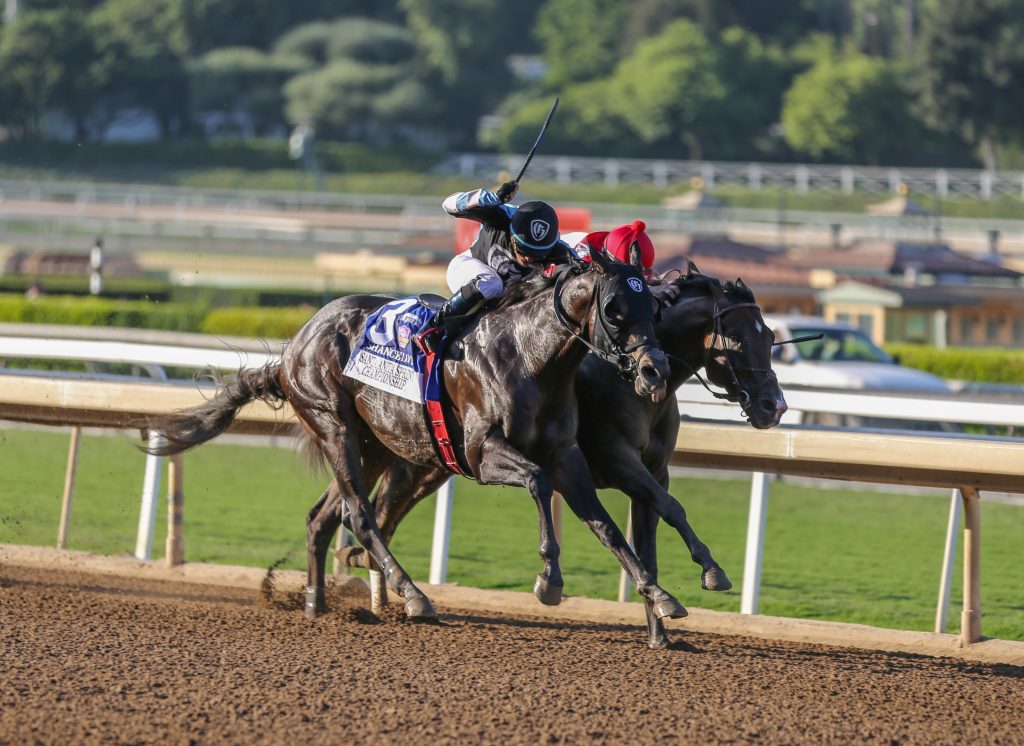
I’ve never read a book on handicapping but certainly think I could have written a few. It’s something that has been on my agenda for a while and eventually I will get to it. While I will no doubt enjoy talking about some of the major scores, including my three biggest pick six hits of $540k, $126k and $143k, it’s those mind boggling beats I can’t wait to tell you about. They deserve a chapter all their own and will get it.
I was taught to read the Racing Form by my dad in Saratoga when I was maybe 10 or 11 years old. Since that time, I have remained a student of the sport, handicapping, and have worked tirelessly to perfect my craft, beat the game and learn all there is to it. This continues through today. Although I have never read a book, I have done studies, kept statistics, and observed some of the biggest and best horse players in the VIP and big bettor rooms at major racetracks. I’ve also been observed and watched closely by some of these very same bettors.
I usually have one or two tellers I bet with at the tracks that I frequent. I have developed good relationships with every one of them and we’ve shared the good, really good, bad, and ugly, together. I will never forget an experience I had with one of them some years back at Calder in Miami that was somewhat enlightening. The teller was Artie, a longtime South Florida mutual clerk at both Calder, Gulfstream and even Hialeah, back in the day. I was betting at his window regularly, at the time, and usually it consisted of a pick 6 or 4 wager.
One day Artie called me over to his window between races during a quiet moment. He told me he had something to tell me and wanted to make sure I heard it from him as opposed to another. It was obvious my remaining a customer of his, for lack of a better term, was important to him. Artie told me that after I bet at his window people frequently came to him afterwards inquiring about who and how I bet. He told me they even offered him $10 and $20 dollar bills for the info, some even more but that he never told anyone and always said “he’s right over there, go and ask him.” Only a few ever did. Artie wanted to make sure I heard this from him and not someone else. I thanked him and told him I appreciated how he handled it.
One of the few who did approach was a semi-retired CPA of all things, who wanted to pick my brain about handicapping. He told me he was as much interested in how to wager and structure bets as picking winners. This to me was obviously an intelligent approach as there is a difference being good at handicapping and betting. As one or the other, you will enjoy some success but to beat the game you must be both. The CPA told me he was at the window next to me a few weeks prior, and he heard the manner in which I was calling my bets and it seemed different than what he was accustomed to hearing. It was also different from what he had read in some books. He said my approach to handicapping was much more direct and seemed to focus on one key horse to win in all the exotics. He was right.
Anyone can learn to play basketball, but not everyone can be a good basketball player. It’s no different with being a good at handicapping and betting. The main reason for this is that being a good bettor requires you to go against your normal inclinations. Many aspects of handicapping do this, such as the manner in which you read the past performances or the sheets, if you use them. The normal inclination when handicapping and betting is to spread more and thus cash more. You think that means win more but it doesn’t. The focus should be on making it count when you’re right. Look for value and capitalize on it when you are correct. As opposed to playing a pick 4 for fifty-cents and spreading to four horses in one particular race, play that same ticket for two dollars using one horse. When you are right you will get paid four times the amount. You may cash fewer tickets but at the end of the day you will win more money and be closer to the goal of beating the game. If you can’t find a horse you are comfortable riding with and singling, perhaps it is not a good sequence to play. If you only play fifty-cent pick 4′s, simply reduce your overall investment by using the same approach and taking a stand.
I have never been a fan of boxing horses. There are too many losing wagers, thus wasted money. I prefer not betting against myself and keying a horse. I often key a horse strictly in he top spots but that’s just my style. There is nothing wrong with keying a horse in all the slots.
As we all know, there is a lot of exchange of information on social media and this extends into the Sport of Kings. Horses, handicapping and wagering strategies are talked about in earnest. I frequently see bettors talking about structuring their multi race wagers around their A, B, and C horses. I don’t see many D’s, so maybe it stops at C. I was not a fan of this system when used on Chinese restaurant menus and I am less of a fan of it when structuring tickets. While admittedly I have never read the book on this or any other method, it seems from what I see that most people who use it bet multiple tickets and use different horses on them. The sport of kings has some uncanny quirks, one of which is if you leave the door open someone is going to come in. If you play different classified horses on different tickets you are leaving the door wide open to get burned. At some point you will have all the winners but on different tickets and not cash. It’s like using all but one or two horses in a race, leave the door open and you know what will happen. It is uncanny.
In multiple race wagers, I would suggest using all your contenders on one ticket. If you have some horses you like better or feel have a better chance of winning, regardless of price, or there are some favorites who are likely to prevail, then play a secondary ticket going back to those horses. You can even call them A’s, if you so choose. You can even go back a third or fourth time. What you can’t do is what I see many that use the A, B, C method do is leave that door open. You can’t break up or structure your tickets so that your smaller or go back ticket can win without your main ticket winning. If I play multiple tickets on a multi race wager, if my smaller tickets win, my big ticket wins too. I see some people play a main ticket then go and play another with what they call one or two A horses, then throw in some new horses not on their main ticket. Not only is that betting against yourself but it’s leaving that door wide open. Someone is going to come in.
On the Track
The Del Mar and Saratoga meets are moving right along and the Pacific Classic and Travers are upon us. Both figure to be great races. Out West, Shared Belief takes on his elders, including Game on Dude coming off one of the best works of his career. That should be a heck of a horse race and we will see if Mike Smith made the right choice with the three year old. At Saratoga, we get one of the best cards of the year with the Travers and the supporting stakes. It will be nice to see Tonalist improve off the Jim Dandy, just as Christophe Clement trained him to do. I enjoy watching masters at their craft point for a race and have horses peak on schedule. The Travers looks to be an exciting race this year and was the obvious goal for Tonalist after his Belmont win. We also have Bayern who finally came into his own and ran to his potential in the Woody Stephens and Haskell, Wicked Strong who hit his stride in the Jim Dandy with blinkers added, and the especially dangerous Villa Majorca coming off a bad trip and questionable ride in the Curlin stakes for Ian Wilkes. Ian certainly knows how to point for a race as he learned from one of the best, Carl Nafzger.
Congratulations to Larry Collmus on landing the NYRA announcing job. Larry is an exciting race caller and we wish him well in New York. Larry landing that job had to be the worst kept secret in racing. More people knew about that than knew Seattle Slew could run when he was a first time starter for Billy Turner. I hope the whole thing was amicable with John Imbriale as he has been a good and loyal back up to Tom Durkin for a long time.
In response to a prior Past the Wire column where we touched on the Del Mar breakdown incidents, California trainer Paul Aguirre brought out an interesting point. If you follow California racing then you already know Paul is a sharp horseman. He runs a great outfit while staying under the radar. Paul mentioned non-uniformity in tracks in Southern California could possibly be hard on horses and have an impact. When the horses move to Del Mar it’s the third or sometimes fourth track change for horses on that circuit, and all the tracks are different. That is a lot to ask horses to overcome and it should at least be considered and discussed as being contributory.
High 5
This week it goes to Florent Geroux and The Pizza Man. The Pizza Man delivers just about every time he hits the racetrack and continually upgrades his company. This 5-year-old English Channel gelding is all heart and is now 12 for 17 lifetime after taking Saturdays American St. Leger at Arlington Park. Florent is improving as a rider every day and is riding as well as anybody on the Chicago circuit right now.
Low 5
It’s either NYRA or Jerry Bailey. In a case of those who know don’t say and those who say don’t know, where was Jerry Bailey on Saratoga legends day? Come on, Nick Santagata was there. Nothing against Nicky, but Jerry won a few more races at the Spa.
Horse to Watch
Majestico flew home first out for Wayne Lukas in a race that looked like it was to get him ready for next out on dirt.




